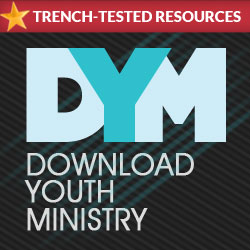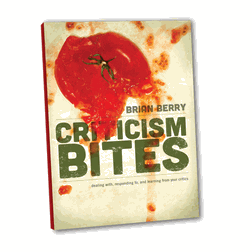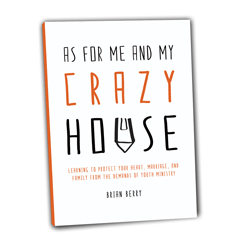I received an e-mail several months ago from a friend asking me if I wanted to go to Laguna Beach for 2 day with Rob Bell. The e-mail describing the event was pretty vague really. It had a price, a rough sketch of the event, the location and that there were 50 spots available. So, myself and 2 other friends – Mark and Scott- decided to pull the trigger and do it, kinda seeing it as a once in lifetime opportunity to rub shoulders in this context. Within 30 minutes of the e-mail blast, all 50 spots were gone.
So, on Tuesday and Wednesday of this week the 2 days finally came and I sat in a small beach front room in Laguna Beach, CA. and listened to Rob and a few special guests talk about life in ministry, family, dealing with criticism, self-leadership, and so much more. I’m going to take a few posts and dissimulate some of it out on this blog; partly as a way to process what I heard and partly as a way to share it with those who didn’t go…. which I’m pretty sure is the category of everyone who reads this blog.
I’ll write posts about 4 things that I found profound encouragement in and that I think Rob has done some significant work in. While no one should learn everything from any one person, and there are things I shouldn’t learn from Rob just like there are things no one should learn from me, it is my experience that the wise learn lessons from all kinds of places along the way and in particular, seek out counsel from those who do certain things well. In this case, the following are 4 areas I found worth learning from Rob and his life to date:
1. Preaching and sermon development.
2. Sabbath and soul care
3. Dealing with criticism
4. Reading, thinking, brainstorming, and idea mining.
first up, PREACHING, TEACHING, AND SERMON PREP.
If you have not done so already, go ahead and buy the video download of Preachers, Prophets, and Poets. Seriously, well worth the $20 and time to listen. It will challenge, inspire, and encourage you as a teacher. Plus, you can hear much of what I heard this weekend regarding this topic there first hand and glean your own conclusions cuz there is lots of overlap. Here goes. Unless otherwise stated, they are largely my summary, not direct quotes.
BE INSANELY CURIOUS. Curiosity is what makes life interesting and keeps a sermon from being merely an info dump. Ask crazy questions about life, the Bible, peoples lives, etc. When your brain says “hmm, what does that mean?”…. start digging for the answers and run with your curiosity. Curiosity doesn’t kill the cat, it awakens it from a lazy slumber.
ENJOY THE PROCESS OF SERMON DEVELOPMENT & DELIVERY, BECAUSE HOW PEOPLE RESPOND IS NEVER IN YOUR CONTROL. This is huge. If you’ve been teaching for any length of time, then you know some talks go awesome and some don’t and the difference between the two can be at times indistinguishable from your vantage. Avoid the temptation to pull your hair out trying to be the best communicator in the world by psychoanalyzing your crowd, getting all caught up in how people respond as proof of some formula. Instead, simply enjoy the journey you’re on and let the chips fall where they may. Sure, learn to be a better communicator and pray that God moves and do the hard work of prep. But if your joy is only in the response, you’re headed for confusion and depression. As cliche as this sounds, teach for the joy of the serving God, not the hope that you’ll get something back from your audience to stroke your ego.
STRIVE TO STIR UP A CONVERSATION, NOT ANSWER A QUESTION. My favorite Rob Bell quote was from years ago, but he touched on it again this week. It is this: “The problem with most preaching today is that when it’s done, it’s done.” In other words, if your sermon ties up all kinds of loose ends and gives people 4 steps to do, you end up with not much movement. But if you leave people saying, “Wait a second. What about…. ? and If this is true, then what does this mean for….?” Then you’ve done your job well and it will change the conversation at lunch and likely a life on Monday.
BE AN ILLUSTRATION HORDER. God can use anything and shows up in all kinds of things. Delete your edit button. Just simply horde ideas. So, if you see something and it sparks your interest, take a picture of it. Cut out the clipping. Grab that physical object you saw or that crazy rock or that weird thing in the window and put it in a bucket for an illustration later. If you hear a story that inspires, ask them to write it down and send it to you. Get a name and a phone number. Just horde all kinds of ideas and then when you need one, go to the bucket and you’ll have it. If you don’t stock the idea tool shed, don’t be surprised when you have to panic and go all over town to find what you need last minute.
BABY STEPS ARE YOUR BEST FRIEND. Don’t have 40 hours to study? No worries. It’s way better to do small bits here and there, letting them soak and marinate a little in your brain instead of a long haul preaching prep marathon. Maybe your personality likes to carve out a day, and that’s fine, but Rob pushed that everyone has rhythms and in prep, it’s good to find yours. Most people need breaks and so does your brain. So dig in for a few hours and then move on. By way of illustration, he argued it’s way easier to move around furniture in a room than it is to load the room with furniture. In the case of a sermon, load your pages with ideas and illustrations and verses and thoughts and quotes little by little and then spend your final days not creating, but moving stuff around, deciding what fits the best and where it should go.
HAVE AN AWESOME CUTTING ROOM FLOOR. This was such a sweet insight. Rob said that, “You can tell the quality of your sermon by the quality of the stuff you had to cut.” Bam! If you had 5 illustrations to use and the four you chose not to use were so awesome you’re going to use them another day, then you probably will have an epic weekend. If everything you cut from your sermon shouldn’t be in any sermon, well the chances that what you kept shouldn’t either is pretty high. The better the material you cut, the greater the likelihood that what you kept is great stuff.
 Husband. Dad to 5. Student Ministry Pastor. Follower of Jesus. Yatta yatta.
Husband. Dad to 5. Student Ministry Pastor. Follower of Jesus. Yatta yatta.



Love it! My favorite is the last point. Had a friend (who started as a prof) once tell me: “Its better to leave stuff on your desk than cut it at the pulpit.’
That has stuck with me. I aim to only bring what I can communicate in the time I have allotted. It has made preaching so much more fun and understandable (I think).
Thanks for sharing the thoughts!